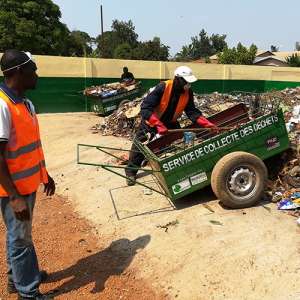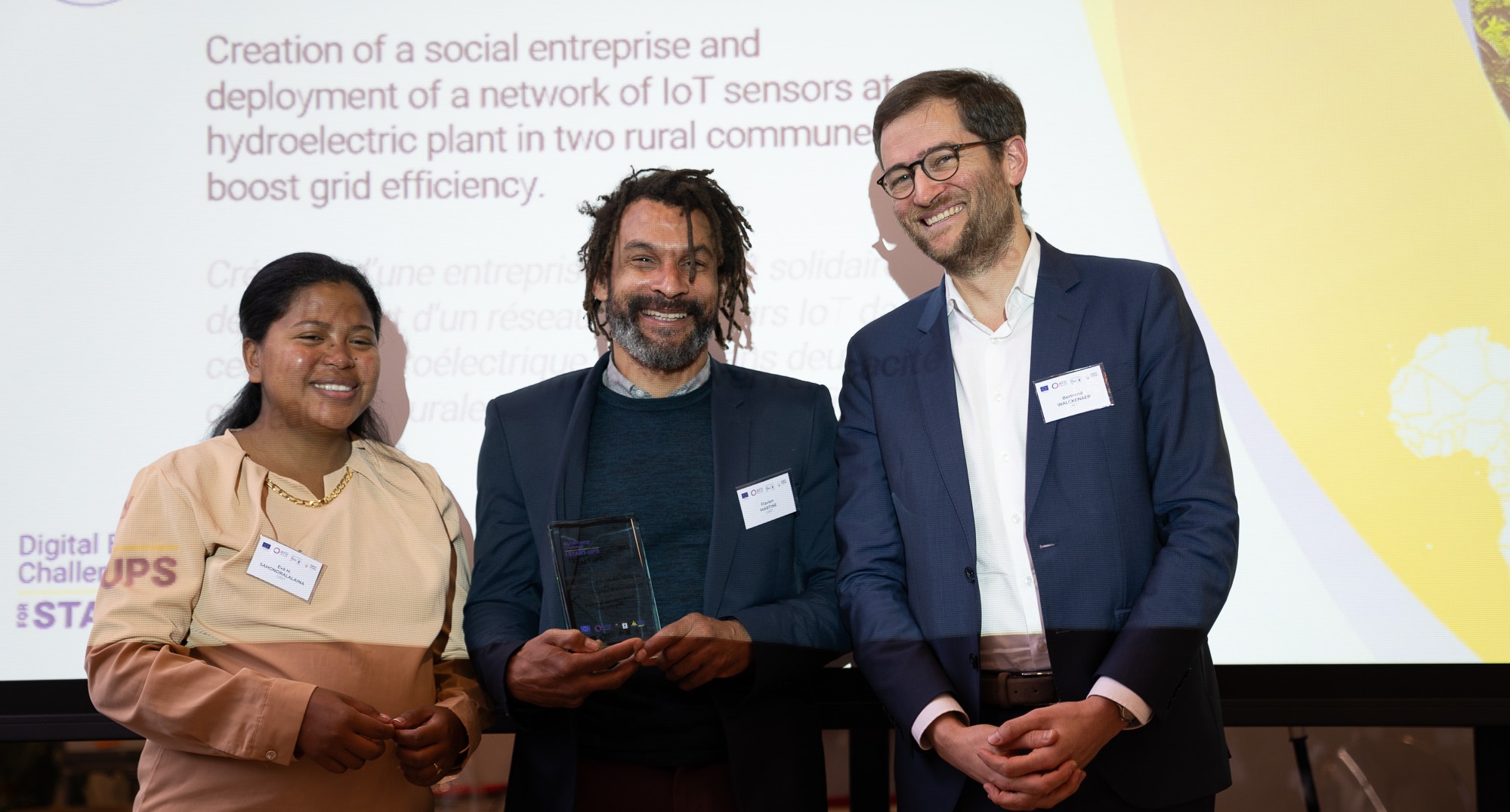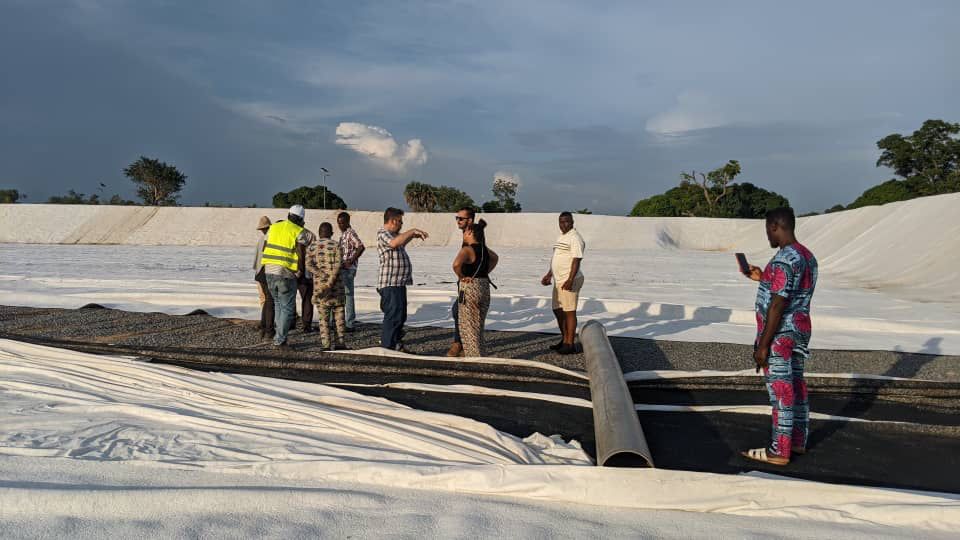The “Inclusive and concerted management of waste in Dolisie” (Gicod) project, led by GRET and the municipality of Dolisie, ended last December after three years of implementation. Funded by the European Union , Syctom and the Fondation SUEZ, the project enabled a waste collection service to be set up in 24 neighbourhoods in the city.
A workshop for sharing experiences was held in Dolisie, in Congo, on 11 December last. This event, organised to mark the end of the Gicod project, brought together the city’s political and administrative authorities, as well as the Chairwoman of the municipal council of the commune of Madingou, the European Union ambassador’s representative, GRET’s representative in Congo, the sanitation managers of the cities of Brazzaville, Pointe-Noire, Nkayi and Madingou, and all the stakeholders involved in waste management in Dolisie.
Three vectors for intervention
Initiated in December 2015, the Gicod project focused its action on three main components:
- Consolidation of the waste management service, in particular via its extension and its coverage of more than 60 % of the city’s neighbourhoods. In this way, the project made it possible to implement a waste management service with more than 59,000 users, out of an expected 60,000. In parallel, a sorting system was launched with a view to re-using waste.
- Strengthening the capacities of civil society and users of the sanitation service by highlighting their participation in waste management and strongly involving them in the design of solid waste sanitation policy.
- Strengthening the capacities of the commune of Dolisie and operators, in particular regarding coordination and management of the service in order to facilitate capitalisation and dissemination of the experience.
An efficient service that can be replicated elsewhere
At the end of this project, the municipality inherited a waste collection service that operates in tandem: a service by truck serving only hard-surfaced roads and a pre-collection service collecting waste from households in neighbourhoods, conducted by 27 pre-collection operators.
In order to strengthen the efficiency of the pre-collection service, three new household waste transit areas were built, in addition to the existing old area. 4,800 waste bins were also distributed to households with awareness of the collection service and having expressed an interest in subscribing to it.
Lastly, several management tools were developed and provided to the municipality with a view to making the achievements of the project sustainable. Based on its success, the question of exporting the Gicod experience to other secondary cities in Congo was often raised during the seminar. It was clear that the experience generated a lot of attention from participants who had travelled from other Congolese cities.






